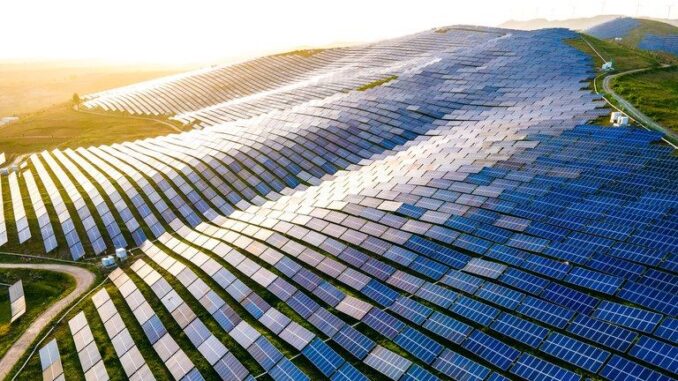
BRICS-member Russia’s energy giant Rosatom is building solar power plant in Africa.
The Mali government has announced that Russia’s state-owned Rosatom has begun construction of a large solar power plant in the country. This should be seen in the wider context of Mali’s militant rejection of the Western military presence and interference.
Mali, a land-locked West African country with a population of 21.5 million joined the Belt and Road Initiative in July 2019. As recently as mid-May 2024 Mali signed an agreement with China’s Ganfeng Lithium to operate the Goulamina lithium mine and also to increase Mali’s share in the project from 20% to 35%, in accordance with Mali’s new mining code.
Russia and China are of course key members of the BRICS alliance, and the two presidents met in Beijing also in mid-March, further strengthening their comprehensive strategic partnership. During the Beijing meeting they reaffirmed their commitment to the United Nations Framework Convention on Climate Change, while emphasizing the necessity of financial support from developed countries to the Global South to mitigate climate change impacts.
The wind energy division of Russia’s energy giant Rosatom, NovaWind, is building a 200 megawatt (MW) solar power plant in Mali. NovaWind director Grigory Nazarov said the solar plant, which will cost €200 million ($217 million), will increase the Sahel nation’s electricity production by 10%, according to TASS.
The facility, which will extend over 314 hectares of land in Sanankoroba, near the capital, Bamako, is the largest in the West African subregion, Mali’s Energy and Water Resources Minister Bintu Kamara said in an interview with the national broadcaster ORTM.
Construction work will take a year and the solar plant is expected to operate for two decades. It will be under the full control of Mali’s Ministry of Energy ten years after it is inaugurated for operation, TASS added.
Latest World Bank data shows that only half of the country’s 21.9 million people have access to electricity. The former French colony’s authorities have committed to increase access to 90% by 2036, with urban access at 100% and rural access at 55%. According to Energy and Water Resources Minister Bintu Kamara the solar plant “will make it possible to significantly reduce the electricity shortage currently present in the country.”
Mali’s military government is cited by local media as saying the collaboration with Russia on the solar project “represents a significant step towards diversifying the Malian energy mix and reducing its dependence on fossil fuels.”
During the signing of the agreement with NovaWind for the photovoltaic solar power plant in March, Malian Minister of Economy Alousseni Sano said that relying on thermal power was costly and has weighed heavily on the country’s finances. Presently, 70% of Mali’s electricity is produced from thermal plants.
Source: RT News, May 27, 2024. https://www.rt.com/africa/598280-russian-novawind-solar-power-plant-mali/